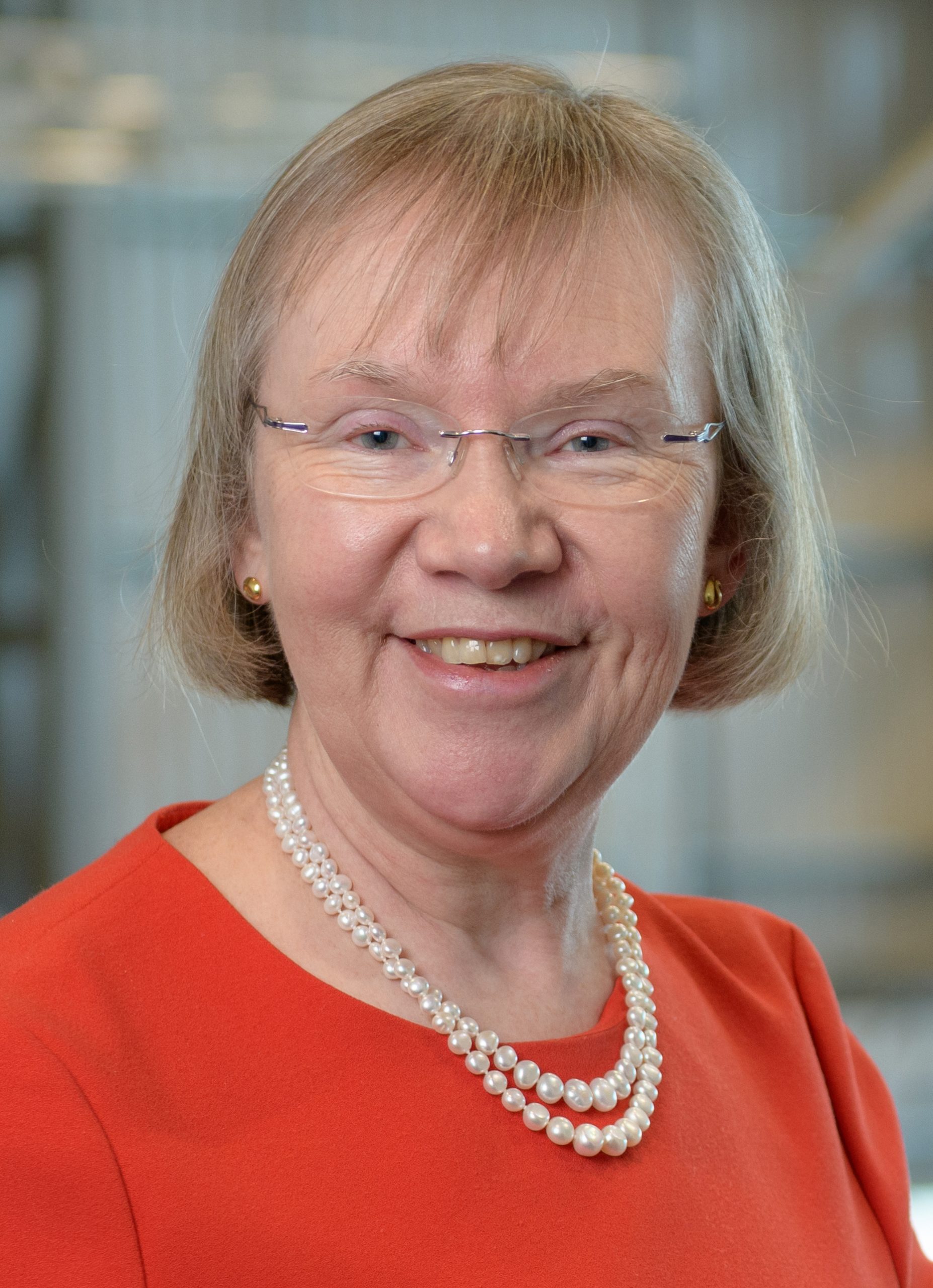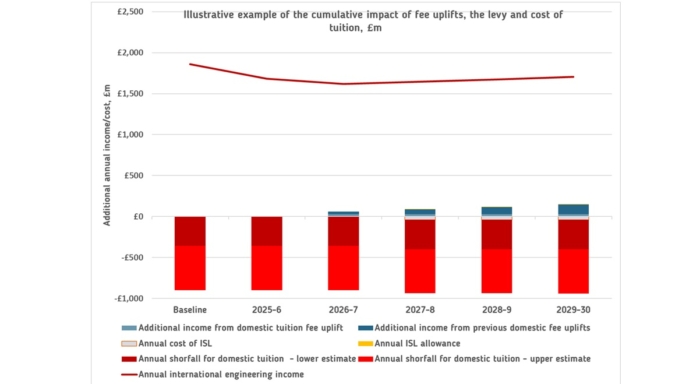We are delighted and proud that Professor Helen Atkinson CBE, FREng, President of the Engineering Professors’ Council 2011-13, has been made a Dame in the Queen’s Birthday Honours 2021.
Cranfield University’s Professor Helen Atkinson CBE, FREng has been made a Dame in the Queen’s Birthday Honours 2021 for services to engineering and education.
The full citation issued by Buckingham Palace states:
“Helen Atkinson is one of the UK’s foremost engineering leaders. She was appointed Pro-Vice-Chancellor at Cranfield University in 2017, with responsibility for the School of Aerospace, Transport and Manufacturing. She has made a tremendous impact in this role, cultivating key strategic partnerships with major industrial companies.
“She has been a committed Fellow of the Royal Academy of Engineering since 2007, serving variously as Vice President, Trustee and Chair of its Education and Skills Committee between 2012 and 2017. Most recently, she has made a vital impact through chairing the oversight group for the Academy’s ‘This is Engineering’ campaign to encourage more young people into engineering.
“She has had roles with government Foresight Panels, HEFCE, EPSRC, IET, National Council for Universities and Business, and the Strategic Facilities Advisory Board of the Royce Institute. She is a leading role model and advocate for women in STEM. She was the first woman President of the UK Engineering Professors’ Council in its 50-year history.”
Helen says: “I was utterly surprised and delighted when I received the news. This is a huge honour. For someone from my background, with both parents leaving school at 16 and as the first in my family to go to university, this is a most amazing thing.
I really want to acknowledge the huge role the Engineering Professors’ Council has played in my career. I started out as an academic at Sheffield City Polytechnic as then was (now Sheffield Hallam) and then at Sheffield University. One of the professors there accidentally left a piece of paper by the photocopier about the Engineering Professors’ Council and I remember thinking ‘That looks interesting’.
I got involved in the Committee [now called the Board] when I was a Professor in the Engineering Department at Leicester University. I was really struck by the fact that even though the Department had strong demand for its undergraduate places, the Head of Department said ‘There is no money to buy the equipment for teaching’. I took a proposal to the EPC Committee to set up a piece of work to investigate, dispassionately and objectively, the real cost of teaching engineering students and teaching them well. This is, of course, a complex question. We drew together a working group and commissioned some consultants to help us to understand the way university finance models were operating. The Engineering Technology Board (as then was) helped with the costs. A number of universities agreed to be case studies for the investigation, across a range of types of institution. I chaired the working group and am immensely grateful for the wonderful and wise support I had from EPC colleagues.
In terms of my own development, this was the first time I had really had an opportunity to get my head round the way university finances worked and the different models universities used to flow through funds received from HEFCE to departments. Although the way university finance works has moved on, this experience has stood me in incredibly good stead now I am a Pro-Vice Chancellor.
We produced a careful and balanced report which I know was drawn on by HEFCE to support its consideration around the funds for Engineering teaching during that period. As Chair of the Working Group I was very determined we should take a national view representing all types if institution. The thinking I developed then flowed into my Presidency of the EPC a few years later.
I was very surprised to be encouraged to stand for election as President of the EPC. I was even more surprised when Fiona Martland [the EPC Executive Director at the time] stood up to say at the AGM that I was the first woman President in the 50-year history of the EPC and its forerunner bodies.
What I knew was that the EPC was such a good body to be part of – it draws together academics right across the sector – all of whom have a passion for encouraging the next generation of engineers.
During my period as president we worked in conjunction with other groups to ensure the impact of UK Border Agency changes on engineering in HE was fully highlighted – engineering departments were second only to business and administration in their recruitment of overseas students, particularly for MSc courses, bringing around £750 million a year at that time into the economy. In addition, we ensured that the voice of HE engineering was heard in the school curriculum reforms led by the DfE (e.g. with Maths A-levels).
A key theme of my presidency was directing attention to the needs of Scotland, Northern Ireland and Wales at a time of considerable turbulence for funding in England and with the Scottish independence debate. In addition, the EPC was cited 11 times in a House of Lords Enquiry Report into STEM in HE. Many of these citations were associated with a national project on the employment of engineering graduates which I instigated and led in collaboration with four other universities. This work originated because I wanted to understand why, when the nation was saying there was a shortage, some engineering graduates were unemployed six months after graduation. My involvement in that work really helped me to put myself in the shoes of students applying for engineering jobs and the whole careers landscape.
The experience I gained through my involvement with the EPC provided a strong foundation for my chairing of the Royal Academy of Engineering Standing Committee on Education and Training for five years and now in chairing the multi-million pound Royal Academy of Engineering ‘This is Engineering’ social media campaign to encourage more young people to consider engineering as a career.
We have now had over fifty million views of the videos (see the ‘This is Engineering’ YouTube Channel) and with more or less equal numbers of girls and boys. I know a number of university engineering departments are contributing to the costs of that campaign. I would like to take this opportunity to express my deep appreciation. It is in all our interests to ensure engineering is seen as a vibrant, exciting career and one where you really can change the world.”
The EPC is immensely proud of Helen and we congratulate her wholeheartedly.
We would also like to publicly congratulate another esteemed EPC member, Dr Shaun Fitzgerald, Director at the Centre for Climate Repair at the University of Cambridge, and Fellow of Girton College, who has received an OBE for services to the COVID-19 Response.
Dr Fitzgerald was called upon in Spring 2020 to help with the SAGE Environmental Modelling Group. He co-authored the CIBSE Emerging from Lockdown guidance, which included advice on ventilation in buildings.
He is also serving on a range of other government bodies as part of the response to COVID-19, such as the DCMS Venues Steering Group, the Science Board to the Events Research Programme (which included the 2021 events at the Circus Nightclub in Liverpool and FA Cup Final), and the Aerosol Generating Procedures panel.




